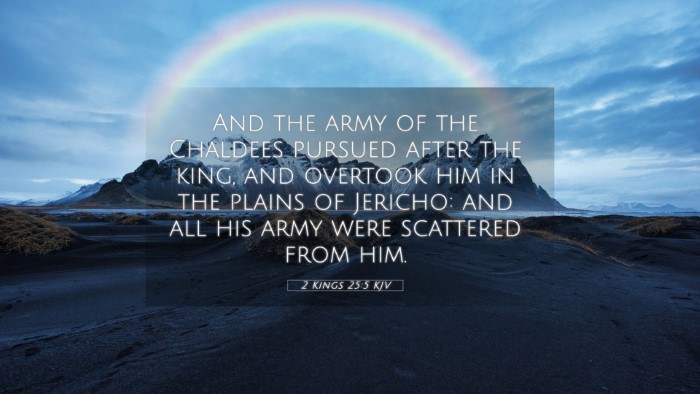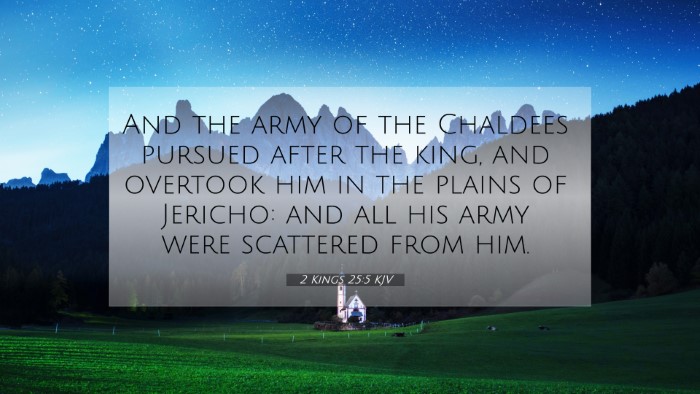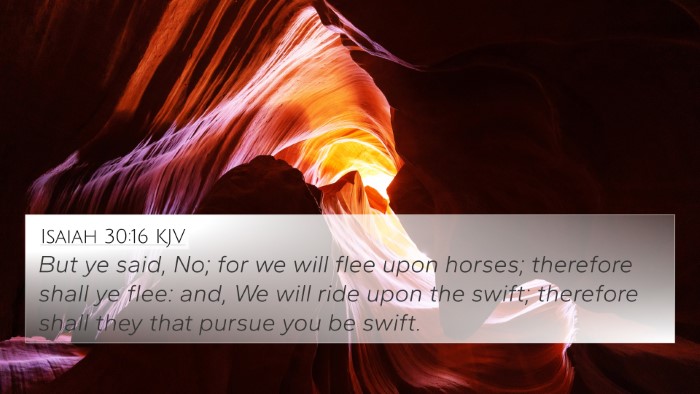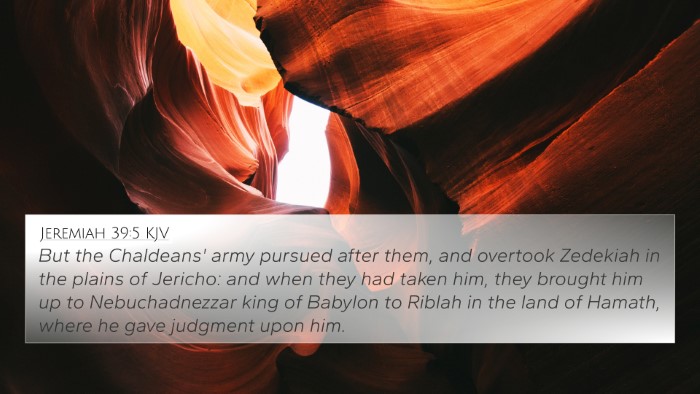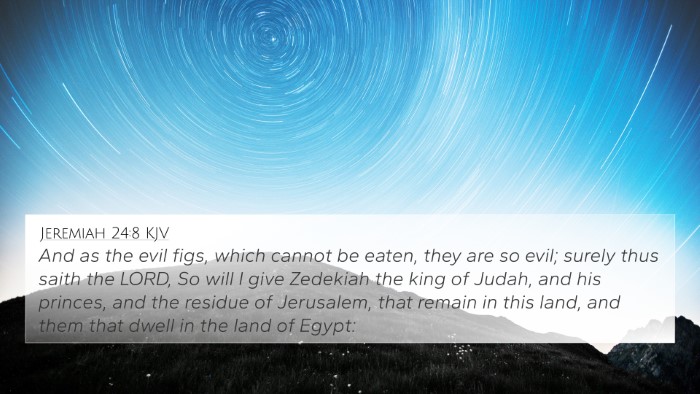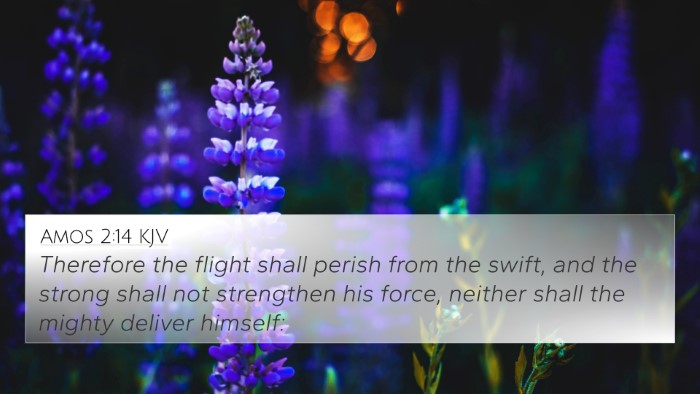Understanding 2 Kings 25:5
Verse Context: 2 Kings 25:5 states, "And the city was broken up, and all the men of war fled by night by the way of the gate between the two walls, which is by the king's garden; now the Chaldees were against the city round about: and the king went the way toward the plain." This moment marks a significant turning point in the history of Jerusalem, highlighting the fall of the city to the Babylonians.
Summary of Insights
This verse illustrates the critical moment when Jerusalem is overtaken, showing the desperation of its defenders, the siege laid by the Chaldeans, and the king’s attempt to escape. Various commentaries provide deeper insight into the implications of this scripture.
Matthew Henry's Commentary
Insights: Henry emphasizes the drastic nature of Jerusalem's fall, portraying the city as a once-great stronghold now reduced to chaos. The flight of the king and soldiers symbolizes utter defeat and abandonment, revealing the futility of relying on military strength against divine judgment. Henry connects this event to the prophecies given by Jeremiah, reflecting on God’s sovereignty and justice in allowing this fall as a consequence of Israel's unfaithfulness.
Albert Barnes' Notes
Insights: Barnes elaborates on the strategic context of the siege. He notes that the means by which the soldiers attempted to escape were embarrassing and reflects on the dire circumstances of the people within the city. This event underlines God's punishment through Babylon, reinforcing the theme of judgment that runs throughout the history of Israel. Barnes also connects this moment to the larger picture of God’s dealings with nations and the fulfillment of prophetic words regarding Israel's unfaithfulness.
Adam Clarke's Commentary
Insights: Clarke provides further historical detail regarding the siege and the response of the citizens of Jerusalem. He emphasizes the hopelessness faced by the inhabitants, as fleeing under cover of darkness indicates a severe panic. Clarke draws parallels to the escape of other biblical figures in times of peril and discusses the spiritual implications of such despair, urging readers to recognize the need for reliance on God, contrasting the faith of the faithful with the despair of the unfaithful leaders of Jerusalem.
Key Themes and Cross-References
- Divine Judgment: This verse exemplifies God's judgment against Israel for its unfaithfulness, which can be cross-referenced with Jeremiah 39:1-3 and Lamentations 1:1-2.
- Human Desperation: The flight of the king relates to similar instances of fear in Psalm 55:5 and Proverbs 28:1.
- Prophetic Fulfillment: The siege is a fulfillment of prophecies stated in Isaiah 39:6-7 and Jeremiah 25:8-9 regarding Babylon's rise against Israel.
- Consequences of Sin: The abandonment of Jerusalem connects with Ezekiel 33:27-29, where God warns about the consequences for a nation’s sin.
- Hope for Restoration: Although this is a moment of despair, it leads to future hope as seen in Jeremiah 29:10-14, where God promises restoration.
- Leadership in Crisis: The king's actions can be compared to David's flight from Absalom in 2 Samuel 15:14-17, showing the impact of leadership failure during crises.
- Historical Context: Referring to the siege's historical background, Lamentations 2:9 reflects on the spiritual decline leading to Jerusalem's fall.
Thematic Connections
This passage connects to broader themes in the Scriptures, particularly concerning God's governance, judgment, and the interplay between divine will and human action. Such themes resonate throughout biblical narratives, creating a scaffold for understanding the consequences of a nation turn away from God.
Conclusion
2 Kings 25:5 serves as a somber reminder of the consequences of sin and the reality of divine judgment. As highlighted through various commentaries, it offers an opportunity for reflection on individual and collective faithfulness. The cross-references provided magnify the interconnectedness of scripture, illustrating how this historical narrative speaks deeply to the themes of reliance on God, the determination of prophetic voices, and the eventual hope for restoration following calamity.
Further Study Recommendations
For readers looking to delve deeper into the text and its implications, utilizing tools for Bible cross-referencing and accessing a comprehensive Bible concordance can greatly enhance understanding. Engaging in cross-reference Bible study methods will aid in identifying how various biblical texts dialogue with one another and can lead to deeper insights into thematic connections throughout scripture.

